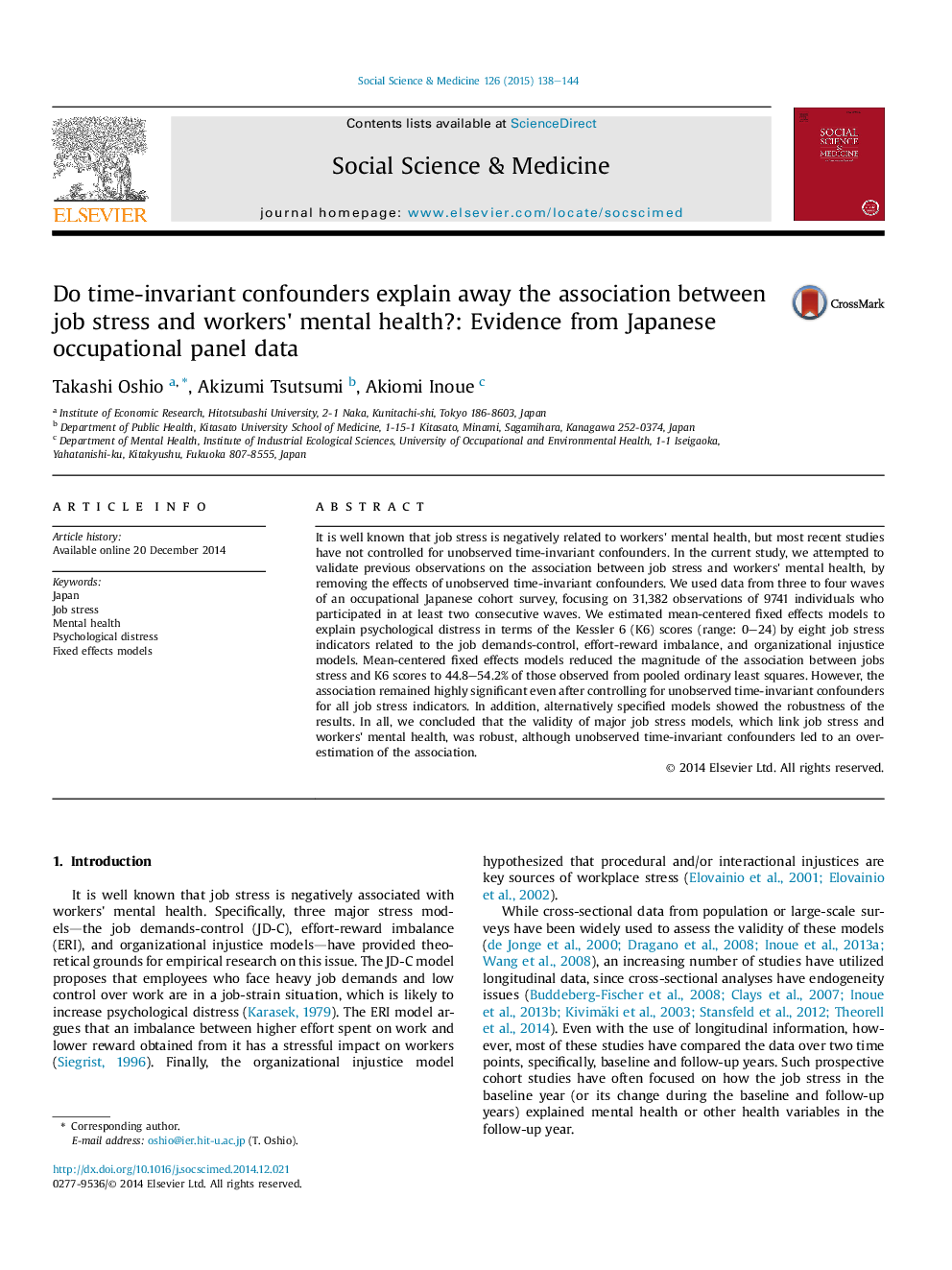| Article ID | Journal | Published Year | Pages | File Type |
|---|---|---|---|---|
| 7333610 | Social Science & Medicine | 2015 | 7 Pages |
Abstract
It is well known that job stress is negatively related to workers' mental health, but most recent studies have not controlled for unobserved time-invariant confounders. In the current study, we attempted to validate previous observations on the association between job stress and workers' mental health, by removing the effects of unobserved time-invariant confounders. We used data from three to four waves of an occupational Japanese cohort survey, focusing on 31,382 observations of 9741 individuals who participated in at least two consecutive waves. We estimated mean-centered fixed effects models to explain psychological distress in terms of the Kessler 6 (K6) scores (range: 0-24) by eight job stress indicators related to the job demands-control, effort-reward imbalance, and organizational injustice models. Mean-centered fixed effects models reduced the magnitude of the association between jobs stress and K6 scores to 44.8-54.2% of those observed from pooled ordinary least squares. However, the association remained highly significant even after controlling for unobserved time-invariant confounders for all job stress indicators. In addition, alternatively specified models showed the robustness of the results. In all, we concluded that the validity of major job stress models, which link job stress and workers' mental health, was robust, although unobserved time-invariant confounders led to an overestimation of the association.
Related Topics
Health Sciences
Medicine and Dentistry
Public Health and Health Policy
Authors
Takashi Oshio, Akizumi Tsutsumi, Akiomi Inoue,
